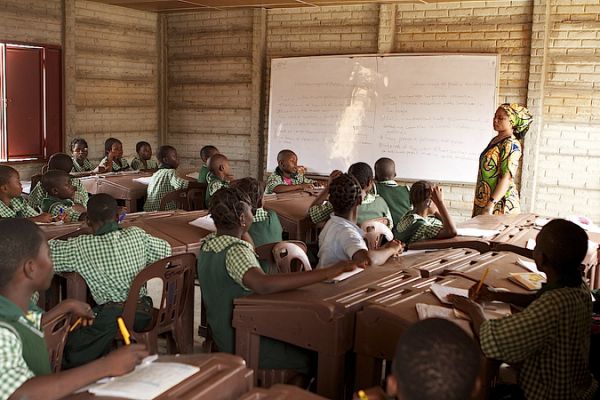Federal Government sets to embark on a national roll-out of accelerated basic education programme

A similar thing is being done for National Commission for Colleges of Education (NCCE) and the National Board for Technical Education (NBTE).
– The programme and curriculum were approved for implementation by the National Council of Education at its 64th meeting in Port Harcourt in 2019.
Read the details below:
Federal Government of Nigeria announced a plan to embark on a national roll-out of the accelerated basic education programme in order to reduce the number of out-of-school children and reduce illiteracy in the country.
Minister of Education, in person of Malam Adamu Adamu, who gave the hint on Thursday in Abuja, said the project of the goverment was that in the next 5 years the country should attain 90 per cent literacy rate, stressing that the goverment would work assiduously towards achieving that.
Adamu spoke when he formerly received the new curriculum developed by the Nigerian Educational Research and Development Council (NERDC) for the Accelerated Basic Education Programme (ABEP) from the Executive Secretary of the Council, Professor Junaidu Ismail.
The programme is designed to provide the recipients with equivalent certified competencies for basic education using effective teaching and learning that match their cognitive maturity. It is a flexible age-appropriate programme that aims to provide access to education for disadvantaged over-aged out of school children and youths between 10-18 years.
Government is upbeat about the success recorded in the pilot phase of the programme in Borno State where the ABEP was implemented in 54 Centres with over 8,000 learners enrolled.
The minister who was represented by the Permanent Secretary Federal Ministry of Education Arc. Sonny Echono, lamented the problem of the obsolete curriculum being used in schools over time, saying the review of the basic education curriculum was long overdue.
He revealed that the National Universities Commission (NUC) has commenced a review of the curriculum of universities and that this would be ready for a formal launch.
Adamu said: “100% of subject areas have had their curriculum reviewed in our university and the national public launch is planned soon. A similar thing is being done for National Commission for Colleges of Education (NCCE) and the National Board for Technical Education (NBTE).
“We are pleased that NERDC is focusing on the vulnerable population. The national rollout will start with other sister states of Yobe, Adamawa and other endemic states like Zamfara, Benue, and even Ebonyi and across the country to ensure that the number of Nigerians who are considered illiterates will tinker down within a short time.
“Our initial projection in the next five years is that we should attain 90% literacy rate and we will work assiduously towards that,” he said.
Executive of NERDC, Prof. Junaidu Ismail, said the implementation of the programme has been in partnership with Plan International, under the EU-Borno project being funded by European Union.
He disclosed that the programme and curriculum were approved for implementation by the National Council of Education at its 64th meeting in Port Harcourt in 2019.
He said: “The programme was piloted in Borno with 54 learning centres with over 8,000 learners enrolled. Preliminary result from the piloting shows that programme is indeed a way out of the menace of out-of-school children in Nigeria,” he said.
In spite of the huge investment in the water sector by the government and international organisations, water scarcity has grown to become a perennial nightmare for residents of Abeokuta, the Ogun State capital. This report x-rays the lives and experiences of residents in getting clean, potable and affordable water amidst the surge of COVID-19 cases in the state.

Comments are closed.